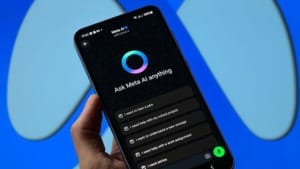Microsoft removes publishing fees for Windows app developers
Microsoft removes publishing fees for Windows app developers, making it free to publish apps worldwide and encouraging broader innovation.

Microsoft has announced that developers can now submit apps to the Microsoft Store without paying any onboarding fees. This change applies to individual developers in nearly 200 countries, who can register using only a personal Microsoft account.
The company had previously charged a one-time fee of US$19 for publishing apps, though this was reduced in some markets earlier in the year. Microsoft has now confirmed that the charge is being removed globally. In comparison, Apple continues to require an annual developer fee of US$99, while Google charges a one-time registration fee of US$25.
“Developers will no longer need a credit card to get started, removing a key point of friction that has affected many creators around the world,” said Chetna Das, senior product manager at Microsoft. “By eliminating these one-time fees, Microsoft is creating a more inclusive and accessible platform that empowers more developers to innovate, share and thrive on the Windows ecosystem.”
Growing opportunities in the Windows ecosystem
Microsoft has been working to make its app marketplace more attractive to developers and users alike. The company has introduced improvements such as standalone installers, an updated web version of the store, and a smoother user experience for downloading and installing apps.
These efforts are paying off, with Microsoft reporting that the store is now used by more than 250 million people every month. By scrapping publishing fees, the company is positioning itself to attract a wider pool of developers, particularly those who may have been discouraged by upfront costs.
The removal of fees is expected to make it easier for independent developers and small creators to distribute their apps to a global audience through Windows. This could also result in a greater variety of apps becoming available to users in the coming months.
Flexible options for developers
Microsoft has confirmed that developers can publish a wide range of apps on the store, including Win32, UWP, PWA, .NET, MAUI and Electron applications. The company is also offering developers the flexibility to use their own in-app commerce systems. For non-gaming apps, this means creators can retain 100% of their revenue instead of sharing a percentage with Microsoft.
By reducing barriers to entry and giving developers more control over how they manage their applications, Microsoft is aiming to strengthen its app ecosystem and encourage innovation. The move underscores the company’s broader strategy of making Windows a more developer-friendly platform, while also boosting the overall value of its store for users.
With competition from Apple and Google still strong, Microsoft’s decision to remove publishing fees signals a clear attempt to differentiate itself as the more accessible option for developers seeking to reach a large user base without heavy costs.
















